“Is that a tornado?” I asked, half to myself and half to my mom on the other end of the phone.
“What?” she replied.
Just ten minutes prior she had asked how the weather was.
“It’s hot and sticky,” I said, as my foot put light but steady pressure on the brake. “Kind of cloudy, kind of sunny. It looks like I’m about to drive through some rain.”
“It’s hot here in Rochester too.”
Her words reached me as I pulled away from the stop sign just outside of Underwood. A town of roughly 350 people seated in rural West Central Minnesota. Lakes Country.
It was July 8th, four months into the Covid-19 pandemic. Since March, time had meandered its way into a haze. Reality mirrored insanity, and our “new normal” was nothing short of a malfunctioning carnival ride. The world was doing all it could to navigate through an invisible virus, a political storm of unforeseen proportions, and racial tensions so high that neighborhoods were being destroyed.
And speaking one’s true feelings, especially on social media, could result in a whirlwind so palpable that one would be swallowed up in anger and rage by perfect strangers. So began the masking of our true feelings. Often withdrawing to face the storm alone.
It wasn’t long before I was pressing on the brake once again. Dalton, a town smaller than the previous, was coming into view. The light rain shower had ended and I could see the sun shining up ahead through the trees.
My friend’s house, which sat near the edge of town, came into view just as her husband crossed the porch with a towel over his head. Their teenage daughter followed. It had been months since I had seen them, thanks to lockdowns and social distancing, but I drove on ready to be home after a good day’s work. In a blink, I was through town and the trees opened to the horizon, pulling my attention with them.
And that’s when I saw the shape.
The long funnel reaching down from the clouds. Thick, white, swirling.
“What did you say?” my mom asked again.
Silent, I halted my glance and stared in total bewilderment.
What’s going on? Is this really happening?
The clouds were a shape I had never seen in person. It was unbelievable, yet unmistakable.
I felt removed, out of place, out of reality itself.
There had been no warning for me. No sirens. No known threat of any kind. Yet, there it was looming before me.
Giant, spiraling, deadly.
“There’s a tornado in front of me.” I said. A remnant of disbelief still clinging to my words.
As the sentence escaped my lips, I saw the white funnel lift up halfway and for a split second I thought it was going to be done. Gone. Over. OK.
But it stretched itself back down, seeming more defined now.
Faster. Bigger. Deadlier.
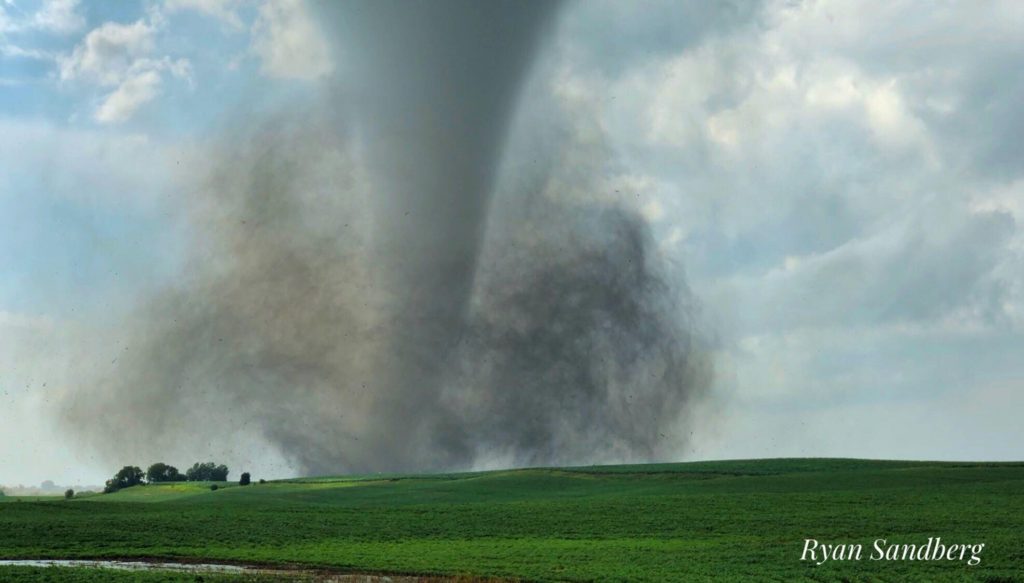
And that’s when the fear began to quickly push aside the calm confusion.
“It’s a few miles away, but I have to let you go.” I continued. I realized she couldn’t see what I was seeing and tried to reassure her. “I’ll give you a call when I get home. I love you. Don’t worry, I’ll be fine.”
But I wasn’t sure that was the truth.
The car was still moving, though I had taken my foot off the gas and had slowed to an almost stop, much like time did in that moment.
Thoughts of taking a picture flashed in my mind. A piece of consciousness was in awe. I glanced at my purse on the passenger seat and rummaged for my phone before hastily abandoning the idea. I had just held my phone, and now I couldn’t find it.
My mind raced through a maze of scenarios.
What way is it moving? What way do I go? How do I get away from this!
Should I turn around and seek shelter in town? But where, the gas station?
I had completely forgotten about my friend who lived there.
Only seconds had passed but the car had now coasted far enough to see around the bend, and the road home was sunny. The conflict of blue sky versus tornado made it more confusing. It was on the edge of the storm.
But what edge? And for how long?
I looked up and tried to decipher which way it was moving. But the stark white clouds billowed up and out against the contrasting blue sky making it impossible to tell.
My eyes darted between the road to my right and the tornado straight ahead.
How fast is it moving! Which way do I go?
To get home I had to skirt the tornado to the south-west. If it was moving west, I may not make it. But nowhere else seemed safe.
So, I floored it.
My kids! They were at my neighbor’s house. Are they safe?
I fumbled again for my phone. This time finding it. Another fleeting thought of getting a picture came to me. It would only take a second. Instead, I frantically dialed my neighbor who lived a mile from us and had been watching my kids for the day.
As it began to ring, I started to doubt my decision. Recalling the phrase “you should never try to out-run a tornado”. But I continued racing down the dividing line of storm and sun. I looked to my left at the thick, picture-perfect funnel reaching high into the sky. Sunlight dappled the cottony clouds above, and filled the swirling cone. I passed two cars that had pulled off to the side of the road.
What are they doing? Why have they stopped?
“Where are you?” my friend said as she answered the phone.
“There’s a giant tornado by Dalton!” I blurted out.
She said she knew and reassured me it was moving north-east, toward Ashby, away from me.
Part of me was instantly relieved, and once more the thought of getting a picture tugged at me from somewhere on the surface. But rooted deep, I wanted only to get to my kids and get home.
Just three miles had passed, with three left to go. I crossed the interstate bridge only to get behind a truck pulling a trailer. Slowing down I weaved over the center line waving and yelling at him to get out my way. Finally, he turned onto an adjacent road and stopped. But I kept going, pushing hard on the gas once again.
Rocks flew as I turned onto our gravel road. Still holding my phone, I called my husband to tell him what had just happened, and to hear his voice.
Minutes later I arrived at my friend’s house. Still floating somewhere out of reality, it was all I could do to pick up my kids and get home.
Home. Safe.
Searching the sky for any signs of danger, I closed my eyes and let the warm sun kiss my face. Listening to the sound of laughter as my kids played in the yard, I fought the urge to run for the basement.
Was it really over?
The very next day we went for a drive to see exactly where the tornado had gone. And how far from it I had come.
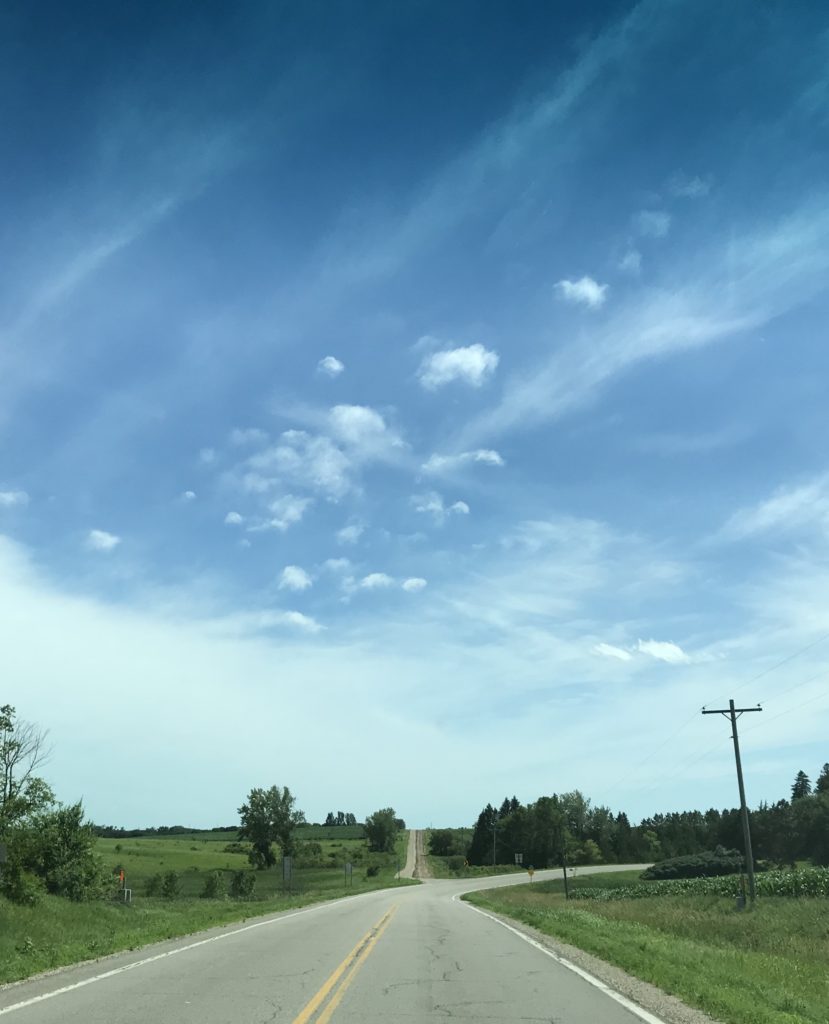
Two miles.
Just two miles away from what had now been classified as an EF4 tornado with wind speeds of 170 miles per hour. It had been moving 20 miles per hour, and was 650 yards at its widest.
Two miles may sound like a lot, but when something is standing a thousand feet tall, two miles is nothing.
Over the next few days, I couldn’t quite shake the tornado. I continually watched the sky, flinched at clouds, and checked radar constantly. I obsessively relived the moments, talked things through with my husband, poured over pictures submitted to the local news by other eye witnesses. Disappointed to find none had seen it from my angle. None of those pictures looked like my tornado. None from my point of view. And it drove me crazy.
Why couldn’t I let it go? Why did this bother me so bad? Why was I beating myself up over not getting a picture?
And then it hit me.
I had spent the last few years doing in-depth self-development. Learning about emotions, myself, faith, and God. Sharing on social media my journey of faith over fear. Telling women, especially mothers, they could do anything they put their minds to. That they are unlimited and with faith they can be brave, strong, and fearless.
But in that moment, I wasn’t. I ran like a dog with its tail between its legs. There was no faith. There was no being brave. There was just fear and panic and limits and running away.
And the missing picture was proof. I had freaked out. Just like in March when the pandemic hit.
It was too much, too big, too fast.
Lock down came only days after a personal health scare, and losing our beloved dog of fourteen years. I began to spiral from the pressure of distance learning. Wanting so badly just to be with my family and grasp the situation, only to find myself screaming at my children to sit down and do their schoolwork, day after day. Followed closely with an aging parent in the hospital with heart failure and the other with limited mobility, now unable to care for themselves. Trying to help from hours away in the middle of lockdown. Wondering if I would ever see them again. Culminating with two friends ending their lives.
Unable to grasp anything spinning around me, I retreated within myself. Cutting off the outside world, I went silent. Allowing judgment and shame to knock on my door ever since.
I was a fraud. A failure. An imposter.
As I sat with those thoughts, I noticed something else. Something necessary. Something unexpected. There was no more knocking. The door had been blown wide open. Making me finally face the pile of condemnation heaped on the other side. And when I did, I could see it for what it was.
A lie.
So, I pulled myself up and started over. I let go of what I couldn’t control, and focused on what I could. I read my Bible. I listened to coaching’s. I reached for those who would cheer me on. And that’s when the clouds began to clear.
We’re told this storm will be our new normal.
Is that the truth?
No, it’s not.
This storm has been raging for a long time. We’re tired, and some of us feel we can’t trudge through another day. But that’s what storms do. They cloud our perception and remove us from reality. They make us feel lost and stuck, make us question our every move. They rage against us, attacking us, relentlessly, hopelessly, over and over, leveling us to our very foundation. Until we just want to quit, give up, run away.
But no storm lasts forever.
And neither will this pandemic, or this political climate, or this racial unrest, or this school year, or whatever it is that you’re facing personally right now.
Because whatever it is, it’s a lot. And it’s a thousand feet tall.
But it will pass.
I may not understand the storm you’re walking through. And you may not understand mine. But whatever it is, don’t walk it alone. Reach out. Talk with someone. Be vulnerable. Because chances are, they are struggling too. And the more we share with others, the more we realize we are not alone. And helping someone carry their burden somehow makes ours feel lighter.
After the storm I reached out, and through it I found my voice, and because of it I had to write my story. And when I did, I realized I may have run from that tornado, but I ran to my kids, my family, my home. Even when I didn’t know if I was running toward the tornado or not, I chose them. I had faith that I would make it. And that choice was powerful and fierce, and raw.
And so are the choices you are making.
Because being brave means doing things scared, like asking for help. Being limitless means knowing when to stop, restructure and choose differently. Having faith means walking even when we can’t see the path before us. Being strong means knowing when to rest, and when to say no. And being fearless means choosing life, and forgiveness.
So, let go of should have, could have, didn’t.
Let go of not good enough, can’t do anything right, wish I would have.
Let go of judgment, especially against yourself.
Because it’s not too late. You’re not too old. You didn’t blow it. You can navigate a new course. Blaze a new trail. Start over. Again. As many times as necessary.
The day of the tornado, as I drove my kids home, we could see a piece of the funnel in the distance. As we neared our home, a rainbow spread out in front of it, and my nine-year-old son said from the back seat, “See mom, that’s God saying it will be OK.”
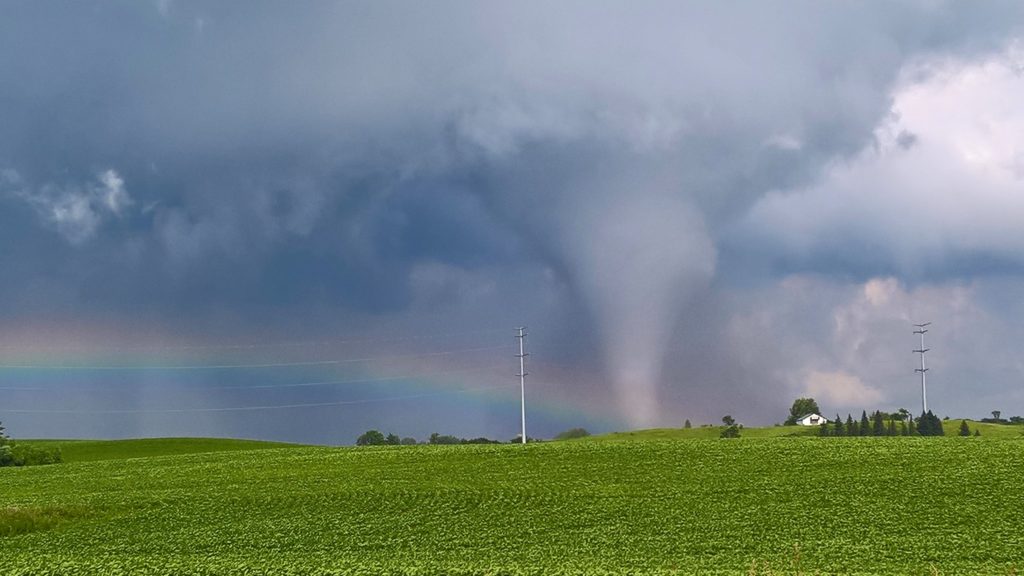
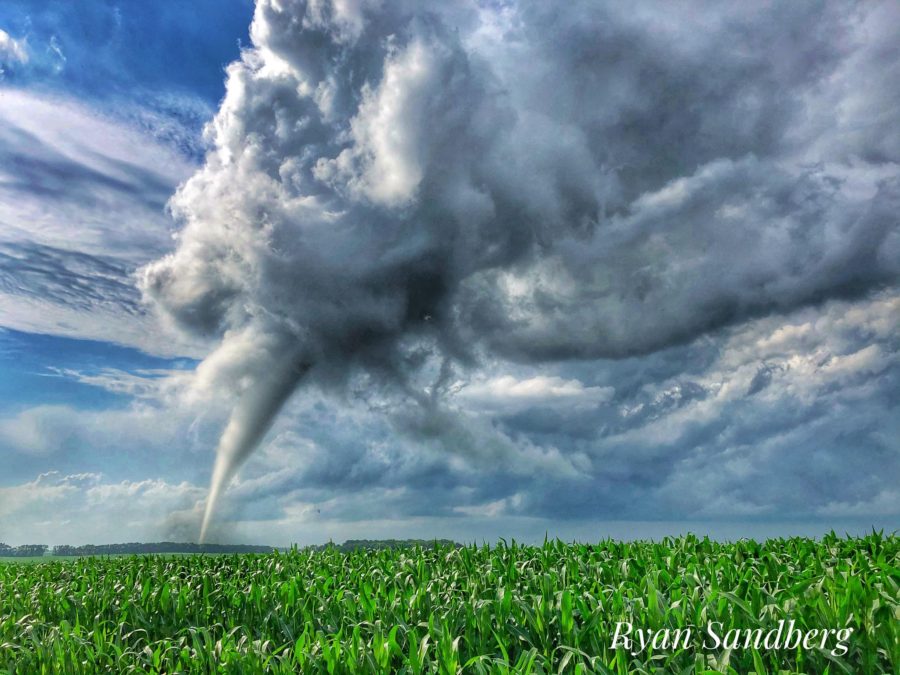
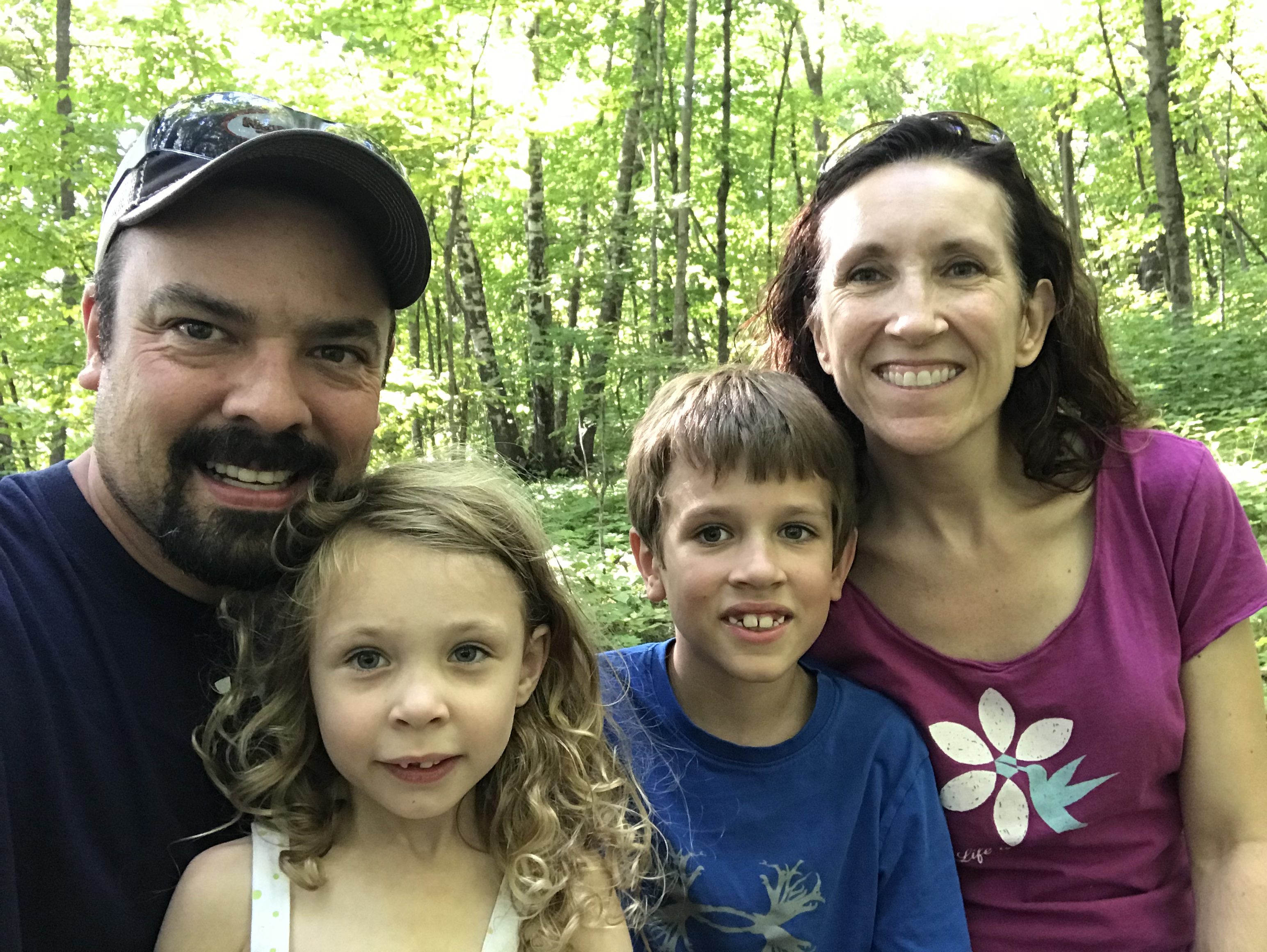
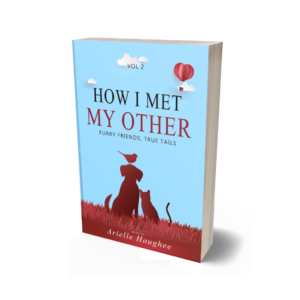
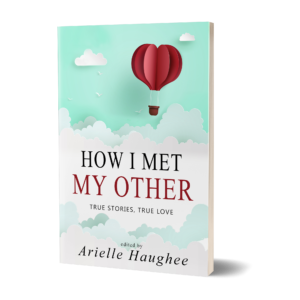




2 Comments
Leave your reply.